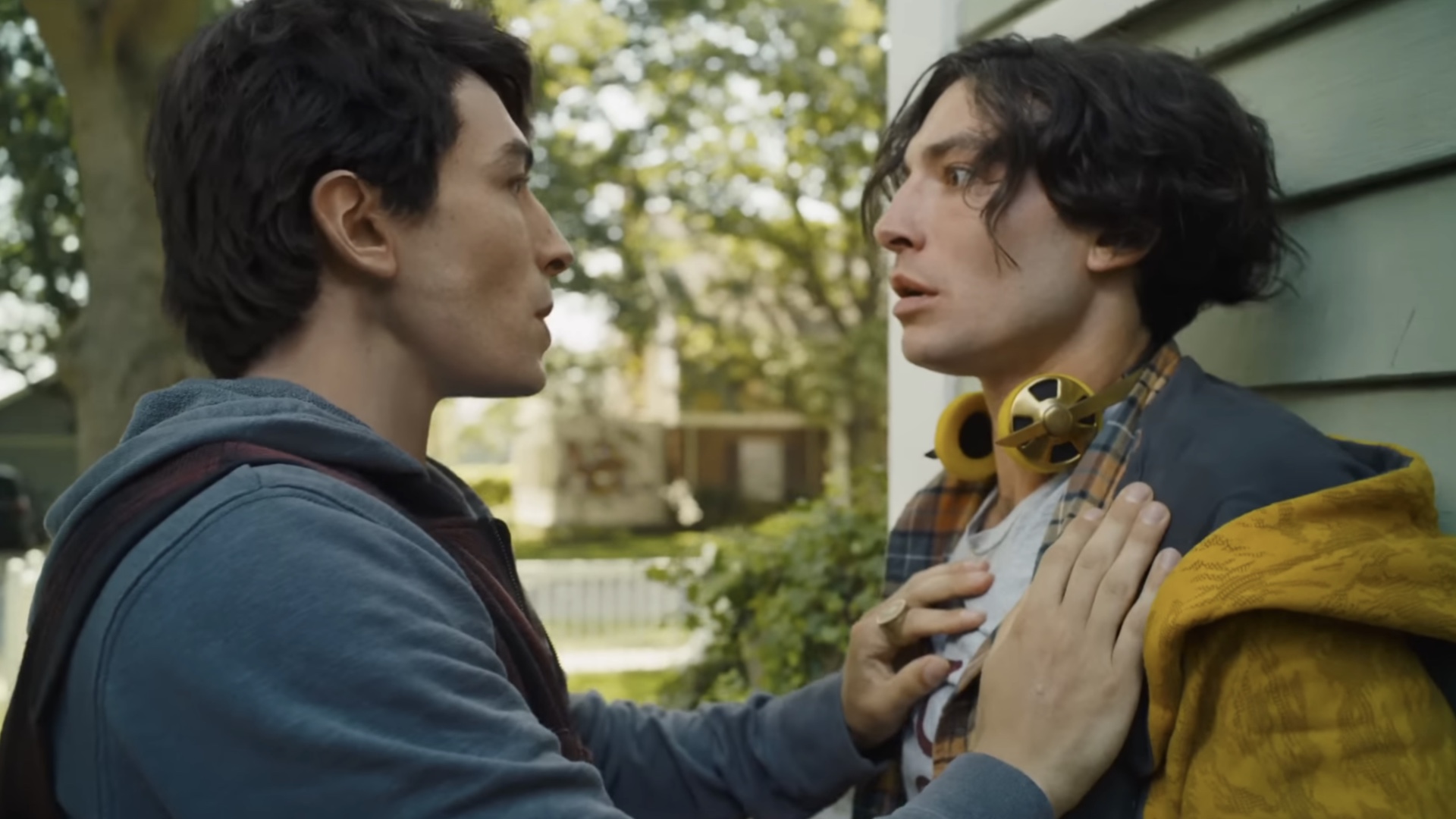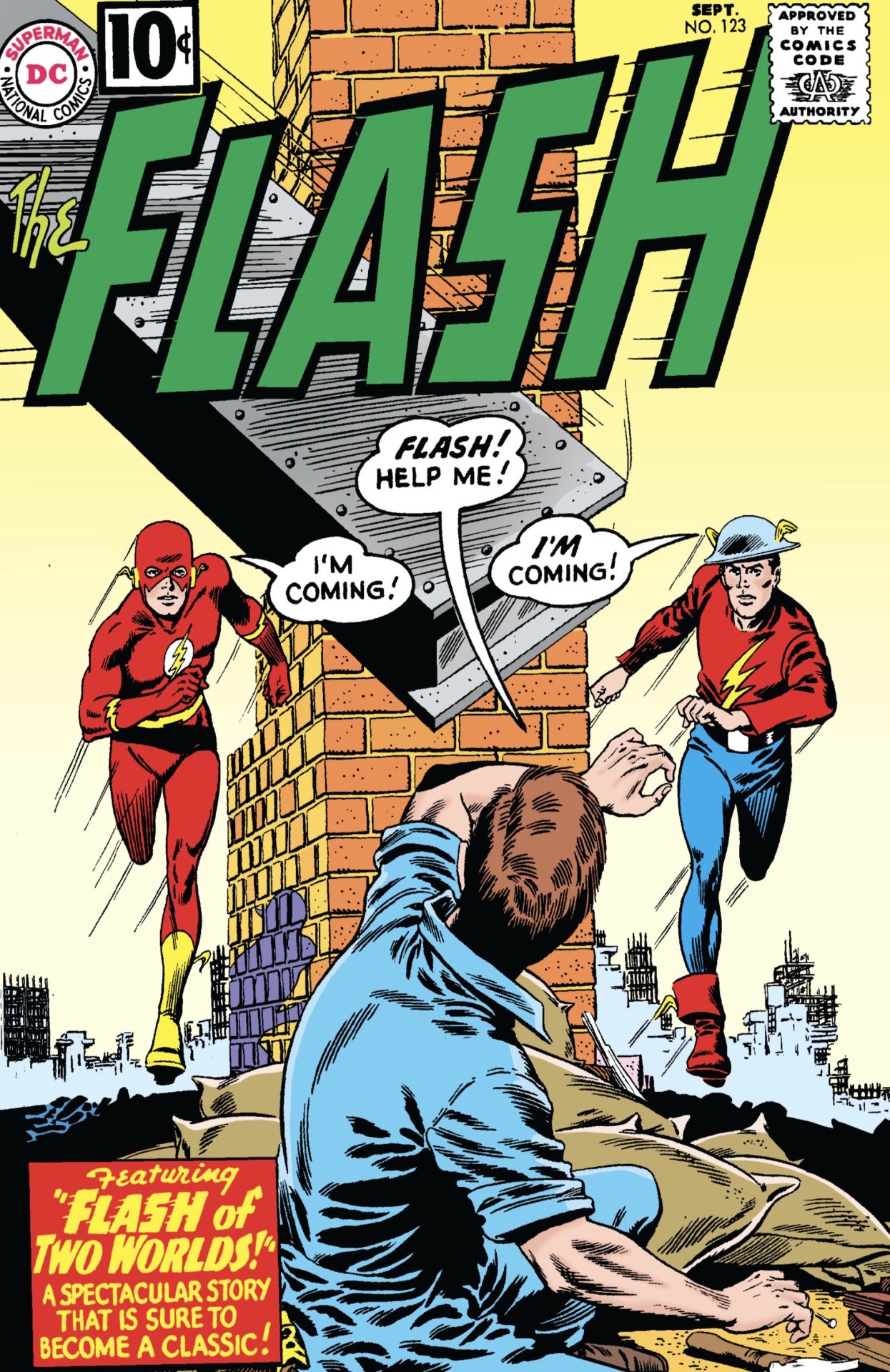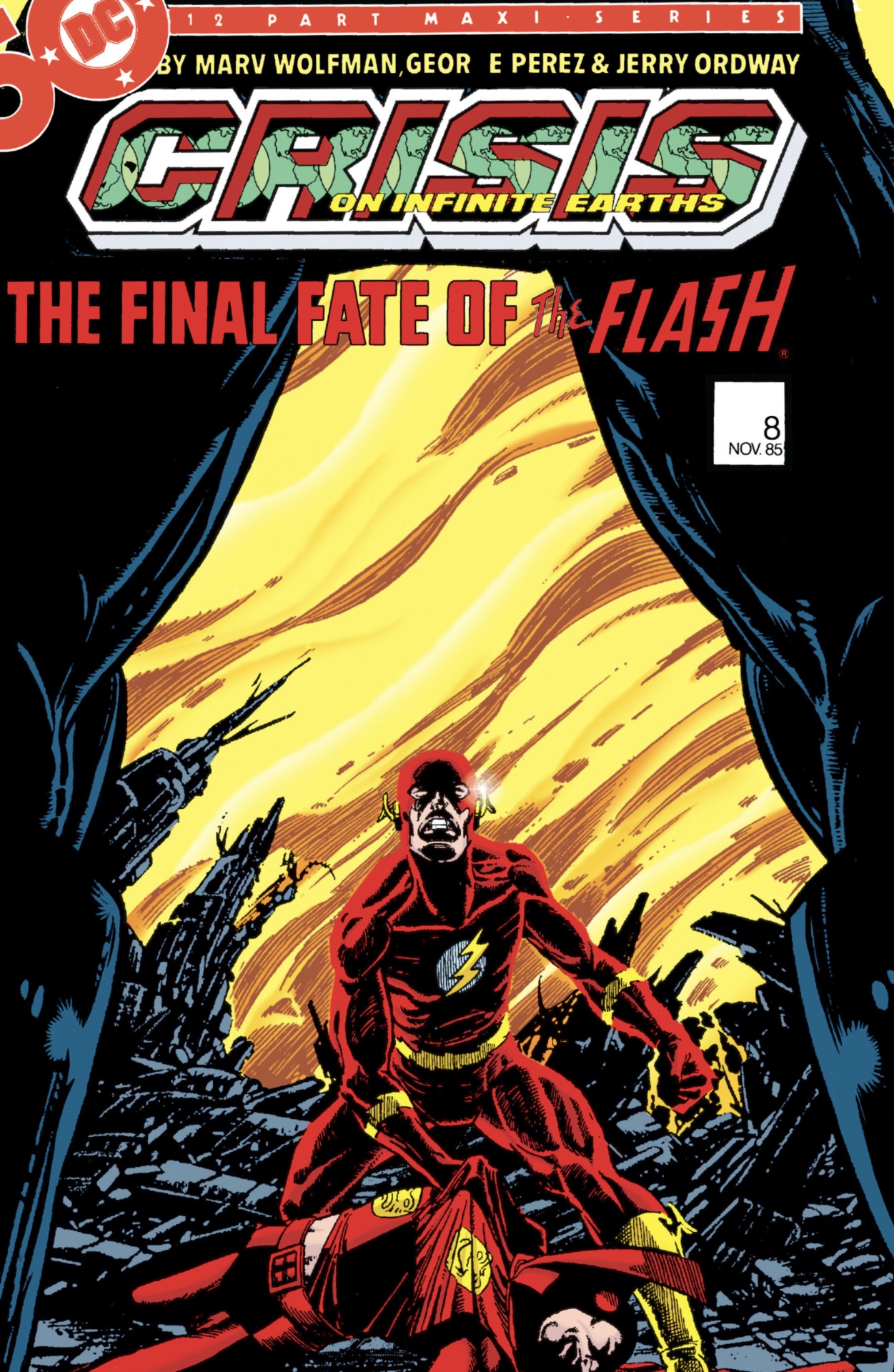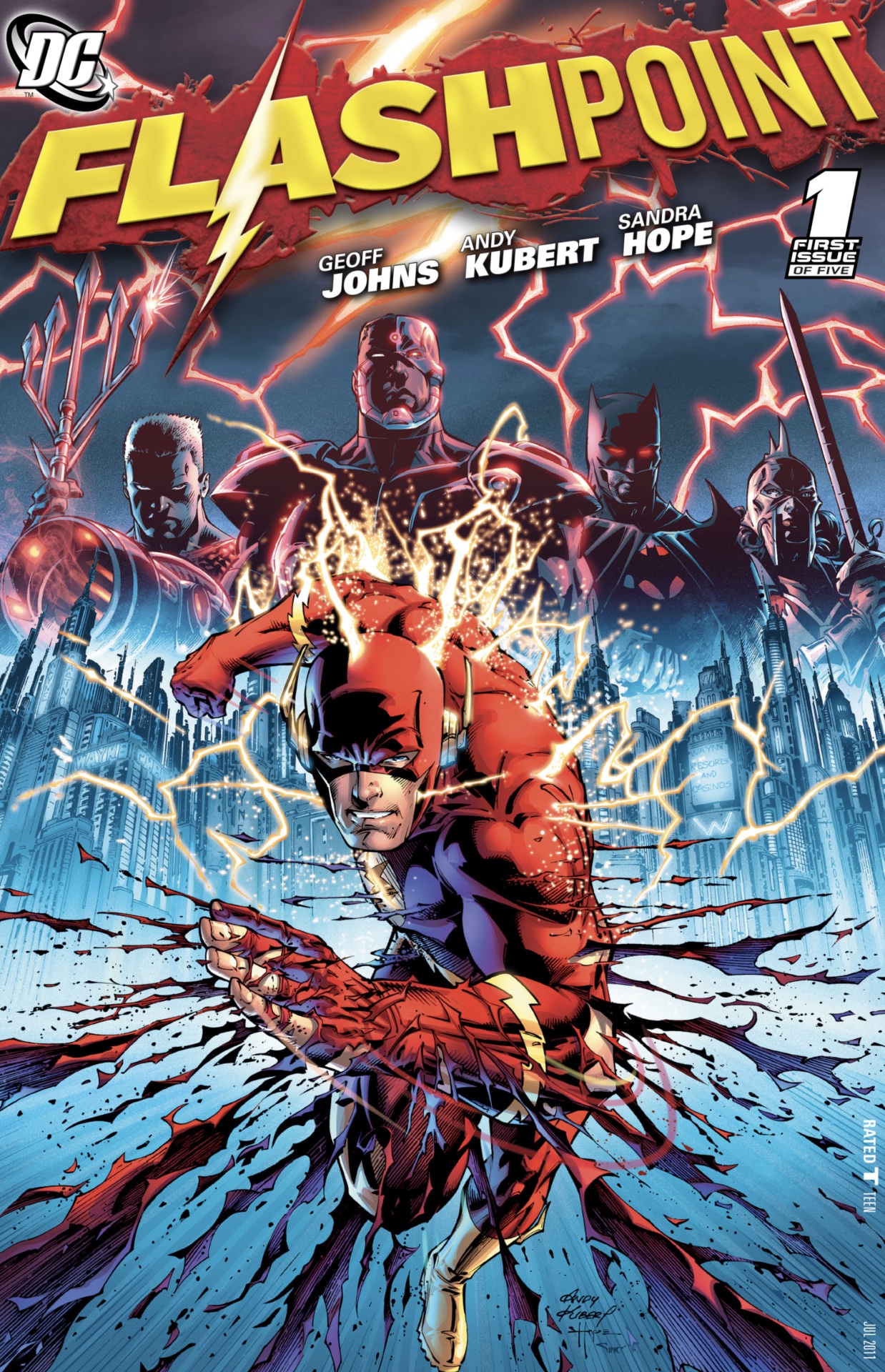The Flash has always been the key to the DC Multiverse
Ever since the DC Multiverse has existed, it's been tied to the powers and stories of The Flash

The concept of the Multiverse, an interconnected web of different realities where all possibilities are realized across countless timelines, is having a big pop culture moment - and not just in superhero media, where it's become the current focus of numerous stories.
That includes The Flash, the new DC film in which Barry Allen teams up with a version of himself from another world in a story that crosses the DC Multiverse and brings in alt-versions of heroes including Batman and Supergirl.
It may seem like The Flash is tapping into a modern pop culture zeitgeist, but the Flash himself has connections to the DC Multiverse that go way beyond 2011's reality-rebooting Flashpoint comic event which provides inspiration for the movie, all the way to the very roots of the DC Multiverse in the Silver Age of the '60s.
In fact, the DC Multiverse itself first appeared in 1961's The Flash #123 in a story titled 'Flash of Two Worlds.'

In that story, Barry Allen uses a strange aspect of his super speed abilities to vibrate the molecules of his body so fast he seems to disappear. But rather than simply reappearing a moment later, he is transported to Earth-Two (which got its name later on), where he meets not another version of himself, but instead the Golden Age Flash, Jay Garrick, whose adventures had been published in the '40s.
This established the longstanding tradition that Earth-Two of DC's Multiverse is the home to the Justice Society and its members, many of whom are the original Golden Age versions of DC heroes such as Green Lantern, Wonder Woman, and of course the Flash.
After that initial story, Barry Allen wound up crossing between worlds numerous times in a series of annual meetings between the Justice League of Earth-One and the Justice Society of Earth-Two, which grew to have a parallel contemporary continuity with its own set of characters and comic titles, a tradition that has endured off and on to this day.
Get the best comic news, insights, opinions, analysis and more!
That said, even after the concept was introduced in The Flash #123, there hasn't always been a DC Multiverse. In 1985, it was decided that having two Earths with parallel histories and heroes - some of whom had multiple incarnations across both worlds - was too confusing and too taxing on readers, leading to the story Crisis on Infinite Earths, in which all of DC's many realities were collapsed into one single core timeline.

And of course, just as he was instrumental in creating the Multiverse, Barry Allen also played a key role in its destruction. In the story's climax, Barry Allen sacrifices his life to save reality itself from the villainous Anti-Monitor, who wishes to destroy every single reality in the DC Multiverse.
After Barry's death, his protege Wally West becomes the new Flash, continuing in his mentor's footsteps and increasing the Flash's potential to move between dimensions and timelines - though with a bit of a different flair, as the Multiverse itself was technically destroyed for most of Wally's time as the Flash.
Later, Barry Allen was revived, becoming the main Flash of the DC Universe again - a chain of events that led directly to the story Flashpoint, in which Barry tries to go back in time and save his mother's life, leading to the creation of a new, vastly different timeline. By Flashpoint's end, the DC Multiverse has fully returned, along with another continuity reboot like what took place back in Crisis on Infinite Earths.

In recent years, the DC Multiverse has evolved into a so-called Omniverse in which all stories and versions of DC's many heroes are considered to be canon in some way, shape, or form. And none other than Barry Allen serves as one of the Omniverse's interdimensional protectors, a role he's well suited for given his history with the Multiverse.
Now, in The Flash, Barry Allen will once again get involved in the many timelines of the DC Multiverse, even teaming up with an alt-reality version of himself in a story that is heavily influenced by Flashpoint - and which is also promised to remake the DC Universe on film.
That means that, just as in comics, The Flash is inextricably linked to DC's Multiverse.
The Multiverse is an important part of many of the best Flash comics of all time.
I've been Newsarama's resident Marvel Comics expert and general comic book historian since 2011. I've also been the on-site reporter at most major comic conventions such as Comic-Con International: San Diego, New York Comic Con, and C2E2. Outside of comic journalism, I am the artist of many weird pictures, and the guitarist of many heavy riffs. (They/Them)



